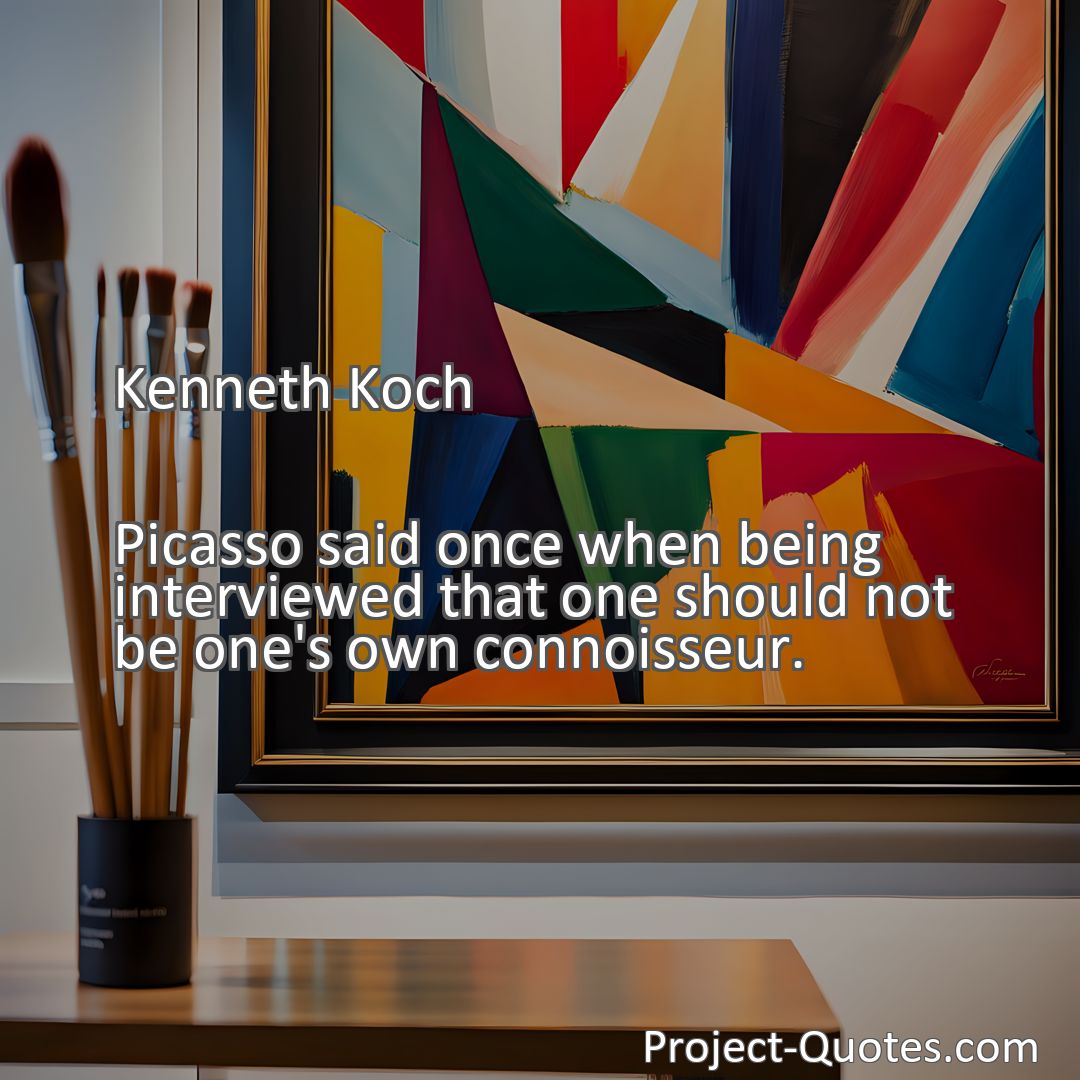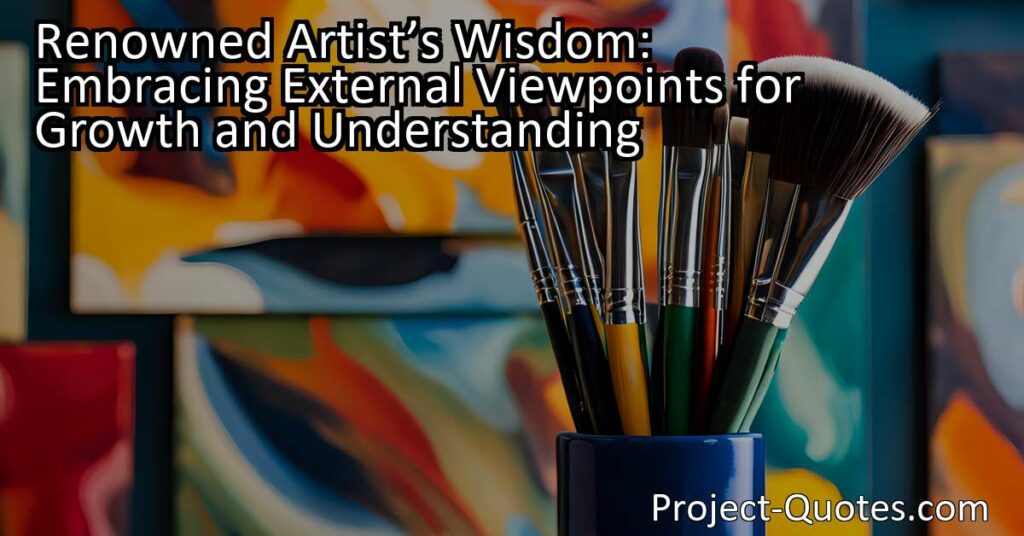Picasso said once when being interviewed that one should not be one’s own connoisseur.
Kenneth Koch
Renowned artist Picasso’s wise words hold deeper wisdom than what meets the eye, emphasizing the importance of embracing external viewpoints for growth and understanding. By seeking feedback and guidance from others, we challenge our own assumptions and open ourselves up to improvement and personal growth. Let us heed Picasso’s advice and embrace the transformative power of diverse perspectives.
Table of Contents
Meaning of Quote – Picasso said once when being interviewed that one should not be one’s own connoisseur.
Picasso once said, during an interview, that one should not be one’s own connoisseur. These wise words from the renowned artist hold deeper wisdom than what meets the eye. It implies that one should not solely rely on their own judgments and opinions when it comes to evaluating the value or worth of something. It encourages individuals to seek external viewpoints, foster diversity of thought, and embrace the perspectives of others.
In a world where self-expression and individuality are highly valued, it can be tempting to believe that we are the ultimate authority on our own creations and choices. However, Picasso’s assertion challenges this notion and highlights the importance of seeking feedback and guidance from others. Being one’s own connoisseur implies a one-sided perspective, limiting our understanding and potentially hindering growth.
To fully grasp the depth of Picasso’s statement, it is necessary to delve into the meaning of the term “connoisseur.” A connoisseur is someone who possesses expert knowledge or understanding, particularly in matters of art or culture. This definition sheds light on the significance of Picasso’s words. By reiterating that one should not be their own connoisseur, he emphasizes the value of alternative viewpoints and the wealth of knowledge present in the world.
In our everyday lives, there are countless instances where seeking the opinion of others can prove invaluable. When we create something, whether it be a painting, a piece of writing, or even a scientific experiment, it is easy to become enamored with our own perception of it. However, by sharing our work with trusted individuals, we not only gain valuable insights but also open ourselves up to improvement and growth. Constructive criticism, differing perspectives, and thoughtful suggestions enable us to refine our creations, challenge our assumptions, and broaden our horizons.
Moreover, Picasso’s words extend beyond the realm of artistic expression into various aspects of life. It is not only our personal creations that benefit from external assessment, but also our decisions, beliefs, and actions. When we become too reliant on our own judgments, we risk becoming trapped in a bubble of our own making; a bubble that limits our ability to understand and appreciate the diverse tapestry of human experiences.
By inviting others’ opinions, we allow ourselves to break free from our own biases, preconceived notions, and limited perspectives. Each person holds a unique set of experiences and insights that can enrich our understanding and contribute to our personal growth. When we actively seek out different viewpoints, we defy the notion that our individual perspective is the only valid one. In doing so, we create an environment that embraces diversity, fosters empathy, and promotes intellectual growth.
Picasso’s quote reminds us that being open to the viewpoints of others is not a sign of weakness, but rather a symbol of strength. It takes humility and a willingness to acknowledge that our own perceptions may not always be accurate or all-encompassing. Embracing the perspectives of others allows us to challenge our assumptions, confront our biases, and ultimately broaden our worldview.
In a society that often values self-assuredness and unwavering confidence, Picasso’s admonition serves as a reminder that real growth and understanding come from being open to criticism and learning from others. It encourages us to cultivate a mindset that views feedback as an opportunity for improvement, rather than as a personal attack. By seeking the wisdom of others, we demonstrate a willingness to evolve and adapt, ultimately becoming better versions of ourselves.
In conclusion, Picasso’s assertion that one should not be their own connoisseur offers a profound lesson that transcends the boundaries of artistic expression. It calls upon individuals to embrace the perspectives of others, challenge their own assumptions, and cultivate a genuine hunger for growth. By seeking external viewpoints and actively listening to the opinions of others, we not only enrich our own understanding but also contribute to the collective wisdom of humanity. So let us heed Picasso’s advice, set aside our pride, and embrace the transformative power of diverse perspectives.
I hope this quote inspired image brings you hope and peace. Share it with someone who needs it today!


